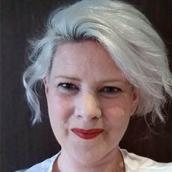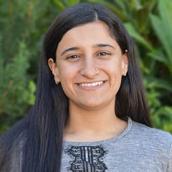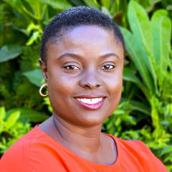We wrote a letter to the hosts of the Global Education Summit: Why listening to practitioners' voices is so vital
A cohort of international experts from our RISE programme's Community of Practice wrote an open letter to Boris Johnson and Uhuru Kenyatta identifying five key considerations in tackling the learning crisis.
-
Date
July 2021
-
Area of expertiseEducation
-
KeywordEducation financing
-
ProjectRISE: Improving education systems in low-income countries
On July 28th and 29th, world leaders will gather at the Global Education Summit: Financing GPE 2021-2025, hosted by Prime Minister Johnson of the UK and President Kenyatta of Kenya, to raise awareness of the learning crisis and raise funds for the Global Partnership for Education. We are so excited to see education take the centre stage; given the extent of the learning crisis, it is critical that the world steps up to the challenge.
We are also delighted to see a slew of celebrities and policymakers joining GPE’s call to ‘raise a hand for education’. But the voices of the actual practitioners working day in day out to help get children learning are also vital to make sure that the money raised at the Summit is used to drive real change.
A letter to the co-hosts
As members of the RISE Community of Practice, a group of practitioners and researchers who work to tackle the learning crisis, we decided to write to the co-hosts of the summit to make our voices heard. The letter was co-written by nine practitioners from Africa and Asia:
- Mary Goretti Nakabugo, Executive Director, Uwezo Uganda, Uganda (corresponding author)
- Ashish Dhawan, Founder & Chairman, Central Square Foundation, India
- Devyani Pershad, Head of International Collaborations, Pratham, India
- Inyang Udo-Umoren, TaRL Country Manager – Nigeria, Teaching at the Right Level (TaRL) Africa, Nigeria
- John Mugo, Executive Director, Zizi Afrique Foundation, Kenya
- Kassaga James Arinaitwe, Executive Director & Co-founder, Teach For Uganda, Uganda
- Moitshepi Matsheng, Co-Founder & Country Coordinator, Young 1ove, Botswana
- Nwabisa Makaluza, Head of Limpopo, Funda Wande, South Africa
- Safi Rahman Khan, Director of Education, BRAC, Bangladesh
In addition, members of the RISE Directorate played a coordinating role in developing the letter.
The letter commends the leaders for their commitment to education but also points out that any money raised will need to be spent differently than funds have been spent in the past if they are to achieve their aims. We sent our letter directly to the two premiers, and it has also been published under the name of our nominated spokesperson Mary Goretti Nakabugo in a Financial Times OpEd article.
Practitioners and researchers have important lessons to share
While those working on programmes and learning from them often have the most comprehensive view of challenges and successes on the ground, those voices do not often reach policy discourse. The reality is that there are many commonly-held assumptions about education that are not in fact based on actual experiences and evidence from education systems. For example, while we understand that many people are very committed to ‘getting girls (and boys) into school’, it is important for us all to realise that while most primary school children globally are in school, they are learning very little. Therefore, the focus needs to be on practices that improve delivery in the education system so that children are learning rather than on initiatives focused on improving access to schools. Similarly, we know that policymakers are often attracted to projects that draw on new technology which they hope will enable education to ‘leapfrog’ forward. However, our research and our experiences show that these types of projects usually fail or are not sustainable beyond the lifetime of the projects. Instead, what is needed are strategies that focus on building practical skills to enable teachers to meet children at the level they are at and build mastery in foundational skills.
Unfortunately, these misunderstandings about education can end up driving the wrong kinds of programming. It is important that those funding GPE are aware that many, many donor-funded education programmes have not been successful in raising learning outcomes and that, therefore, how the newly raised money is spent is of critical importance.
Offering support and partnership
We are all great admirers of the mission of GPE and of the highly inclusive way in which they are governed. We can think of few other organisations that work so hard to include the voices of partner governments, donors, and civil society organisations in their direction. We desperately want GPE to achieve the impact that it is setting out to achieve. This will require donors to dig deep and offer unprecedented financial investment. And it will also require greater efforts than ever to ensure that every dollar invested achieves maximum impact and improves learning. We all stand ready to work in partnership to make this happen.
Together, we can help move education systems from schooling for all, to learning for all!
About the authors:
Kirsty Newman is the Programme Director for RISE. She has worked with government bodies and parliaments globally to support evidence-informed policy making and spent 4 years leading DFID's Evidence into Action Team. In recent years she has focussed particularly on global education as Head of Education Policy in DFID and then as a Senior Education Specialist in the Asian Development Bank. Kirsty originally trained as a medical researcher and has a PhD in Infectious Disease Immunology.
Devyani Pershad is the Head of Pratham’s International Collaborations unit supporting partners to adapt and apply Pratham's innovations to contexts outside India. As part of the TaRL Africa initiative focused on sub-saharan Africa, Devyani leads technical strategy and approach, and manages partner relationships across several TaRL Africa countries. In addition to this role, Devyani leads Communications for Pratham. She has an MBA from IESE Business School, Barcelona and a bachelors in Economics.
Inyang Umoren is the Country Manager for TaRL Africa in Nigeria where she led the creation of the Kano State Literacy and Mathematics Accelerator (KaLMA) and Kebbi Foundational Skills Accelerator programmes, which are TaRL pilots in Kano and Kebbi states, respectively. Inyang has also been providing technical assistance to UNICEF and partners in the Northeast since 2019 when she started working for TaRL Africa. She holds an MA in Educational Planning, Economics & International Development from University College London(UCL) Institute of Education, an MSc in Financial Management from Middlesex University and a bachelors in Economics.



